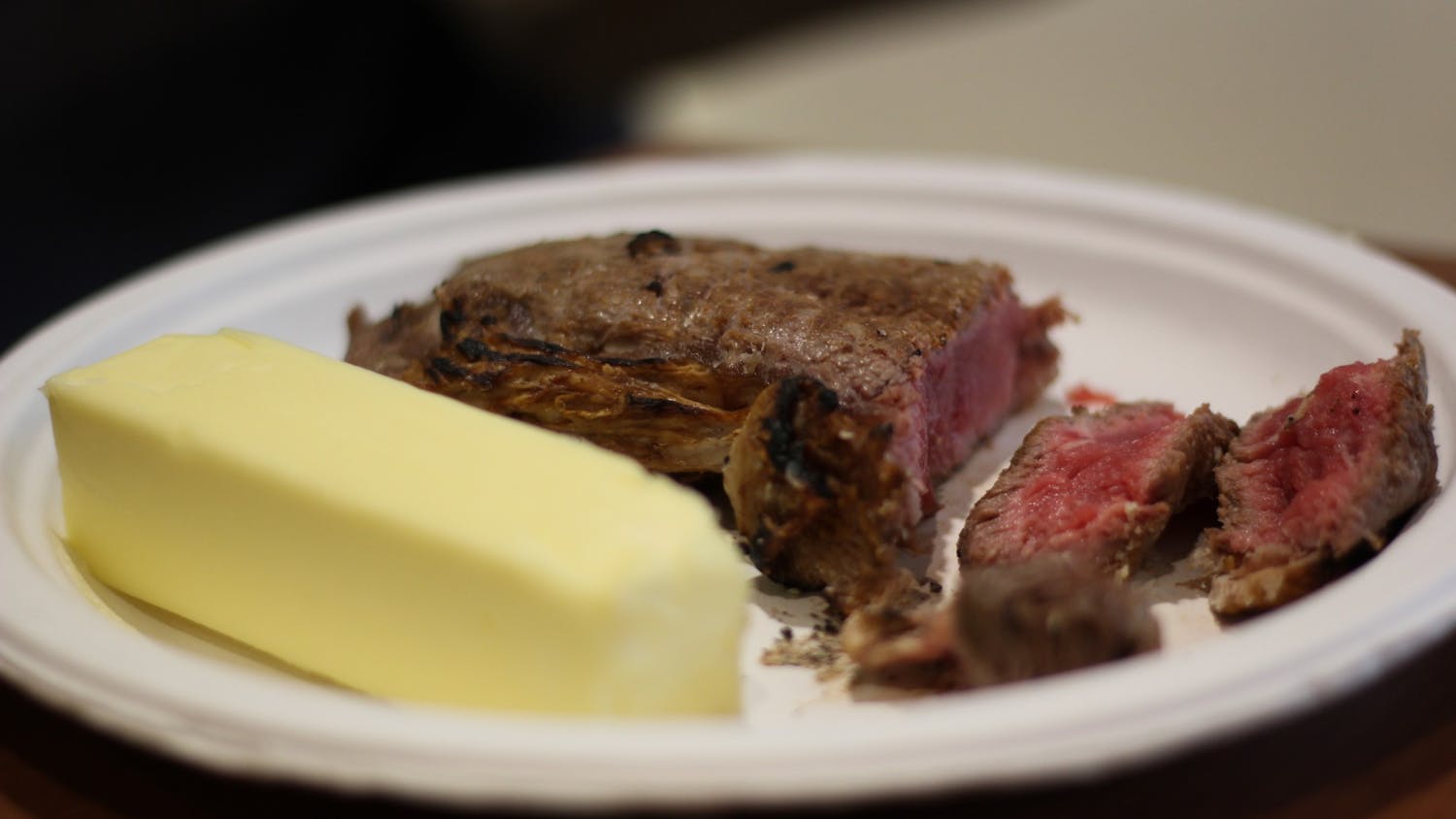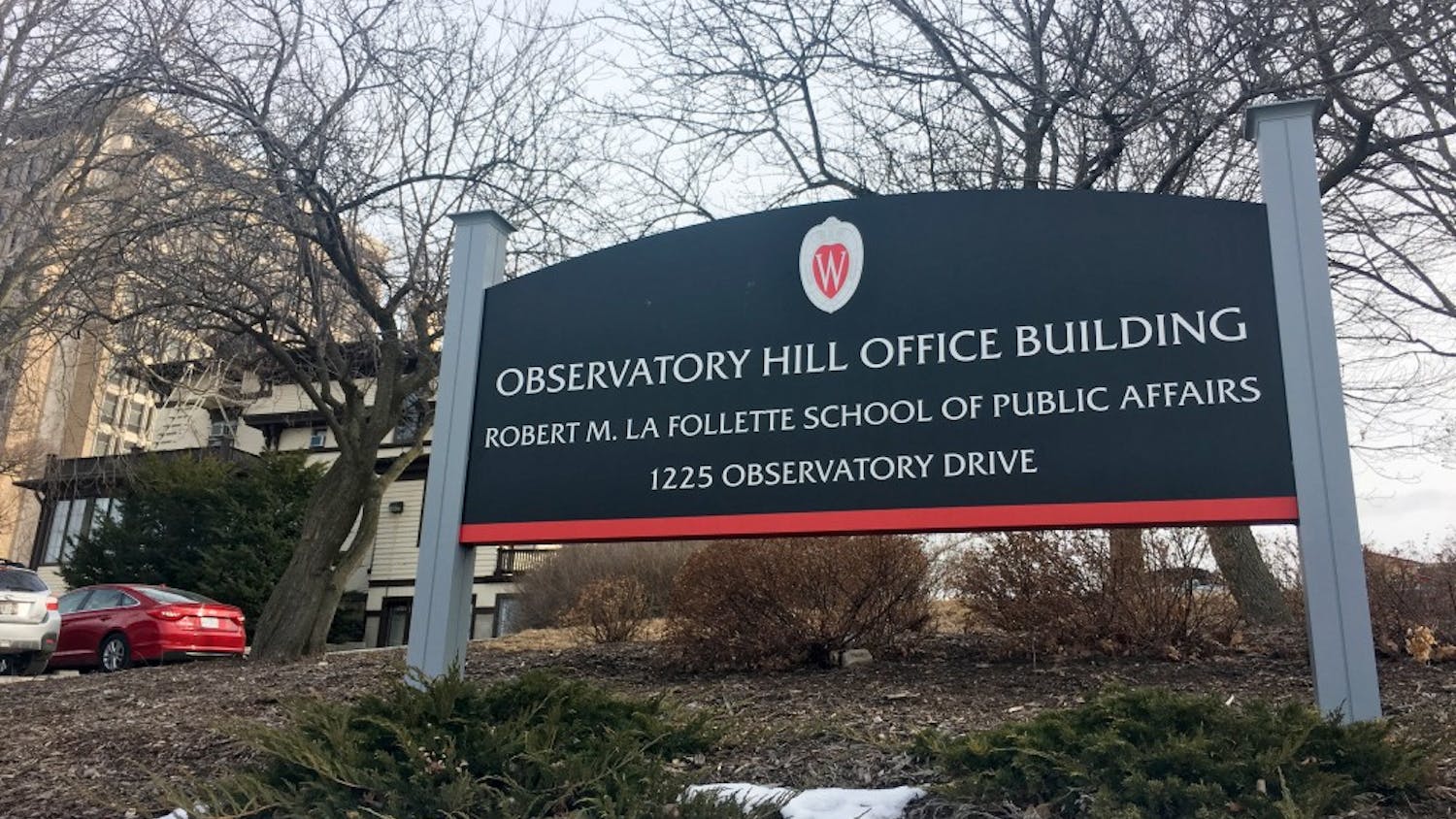Through poetry, song and speech, indigenous scholar Lyla June of the Diné explained at a Distinguished Lecture Series event at the University of Wisconsin-Madison Monday night that indigenous cultures’ agricultural practices and harmony with nature may be the solution for modern problems.
According to June, although indigenous agricultural practices such as grass burning may seem unsophisticated in our modern society, these practices could save modern agriculture.
“Fire has a life-giving property,” she said.
June explained that when we burn a fire, the layer of ash on the soils creates deep, nutrient dense topsoils that are incredibly beneficial to agriculture.
Fear of fire has been ingrained in our modern society, June said. However, she explained this fear of fire may also be the cause of the catastrophic fires our earth is experiencing.
“We’re conditioned to be scared of fire,” June said. “But when we don’t do fire, it creates massive fires.”
Furthermore, June believes our modern agricultural practices have actually been the cause — not the solution — of modern natural disasters like wildfires and flooding.
“Catastrophic fire, catastrophic flooding, the climate crisis and soil erosion can be healed through indigenous techniques,” she said.
Additionally, June told a story about the Bauré, an indigenous group who created canal systems and reservoirs to provide water for agriculture.
She explained that although this is different from modern aquaculture, which involves pipes, this approach is much more harmonious with nature.
“You want to go where the mother is already flowing instead of trying to pipe water where it doesn’t belong,” she said.
This emphasis on harmony with nature is furthered through June’s poem on Hózhó, which refers to balance and beauty.
“Every living being knows what Hozhó means. For Hozhó is every drop of rain, every leaf on every tree … It’s your eyelash, every feather on the bluebird's wing,” she said, drawing from a poem inspired by her grandmother.
June’s poetic explanation of Hozhó explored how the Diné people saw humans as one with nature.
“Hozhó is the healing of broken hearts. It is the prayer that will carry us through anything,” she said.
June further delved into how this sense of oneness with nature enabled various indigenous tribes to create natural gathering grounds for various animals.
The scholar explained how indigenous groups tended to natural spaces in ways that created quality feeding grounds for grass-feeding animals, such as bison and deer. In this way, animals were not only seen as a means of food, but also as kin to provide for.
“Feeding the hand that feeds you,” June explained, is the key takeaway when considering the kinship system indigenous communities engaged in. This kinship approach to sustenance ensured that humans shaped their environment “as a part of it [the environment]” instead of controlling it.
June then reflected that this “reciprocity” based system contrasts the central goal of the current colonial system: “profit maximization.”
Through her presentation, June tried to debunk the stereotype that indigenous cultures are primitive.
In an interview with The Daily Cardinal, June said indigenous cultures “are not primitive cultures, [they] were advanced and highly organized.”
She explained indigenous cultures gave the world corn, rubber, aspirin, syringes and kayaks while trying not to destroy their land in the process.
“If we’re so primitive, why are we doing things that this Tesla, SpaceX culture can’t figure out, like how to not destroy everything?”
How we can contribute
For UW-Madison students who want to get involved in helping the indigenous activism movement, June recommends giving resources or land to grassroots community organizers, particularly those run by indigenous women.
“I think that you won’t be able to give us our culture back. We will have to fight for it and reclaim it for ourselves, but you can stand beside us as we do that,” June said.
June later recommended to the Cardinal a few existing organizations that work towards the holistic security of indigenious communities.
The Seventh Generation fund is a “really extraordinary organization that funds many projects on the ground,” June said. June herself donates all the profits from her music sales to this organization, she said.
She also recommended the Sogorea’te Land Trust, a grassroots organization run by an Ohlone woman, and the Sahnish Scouts, founded by a woman in North Dakota who helps find missing and murdered indigenous women.






